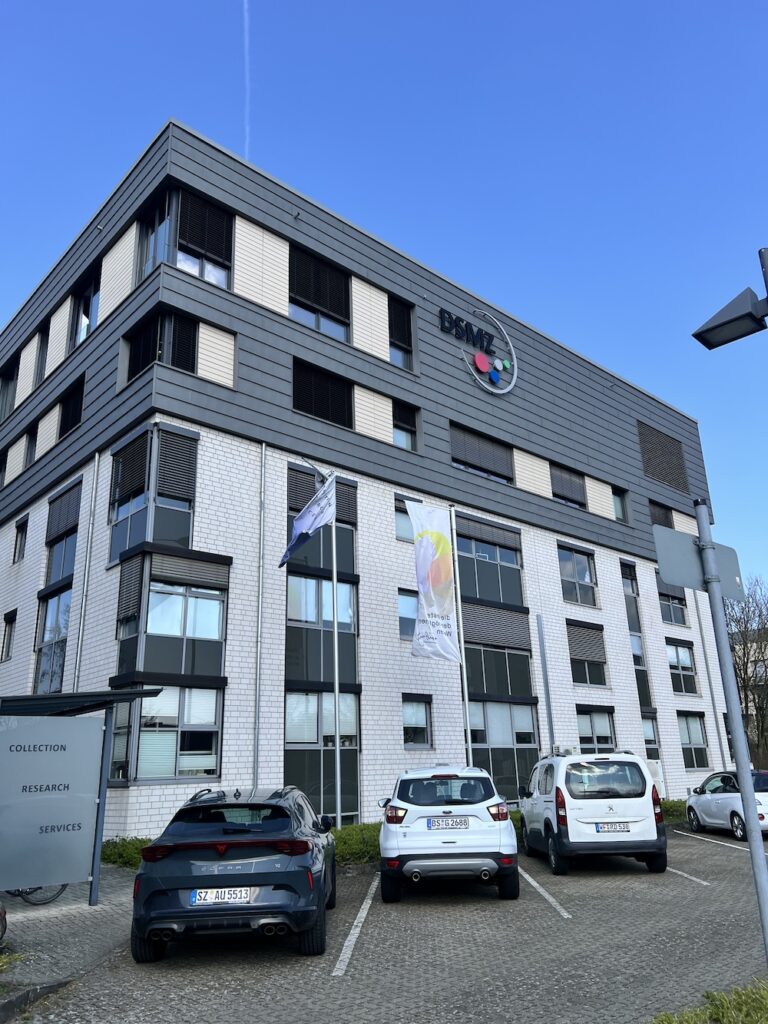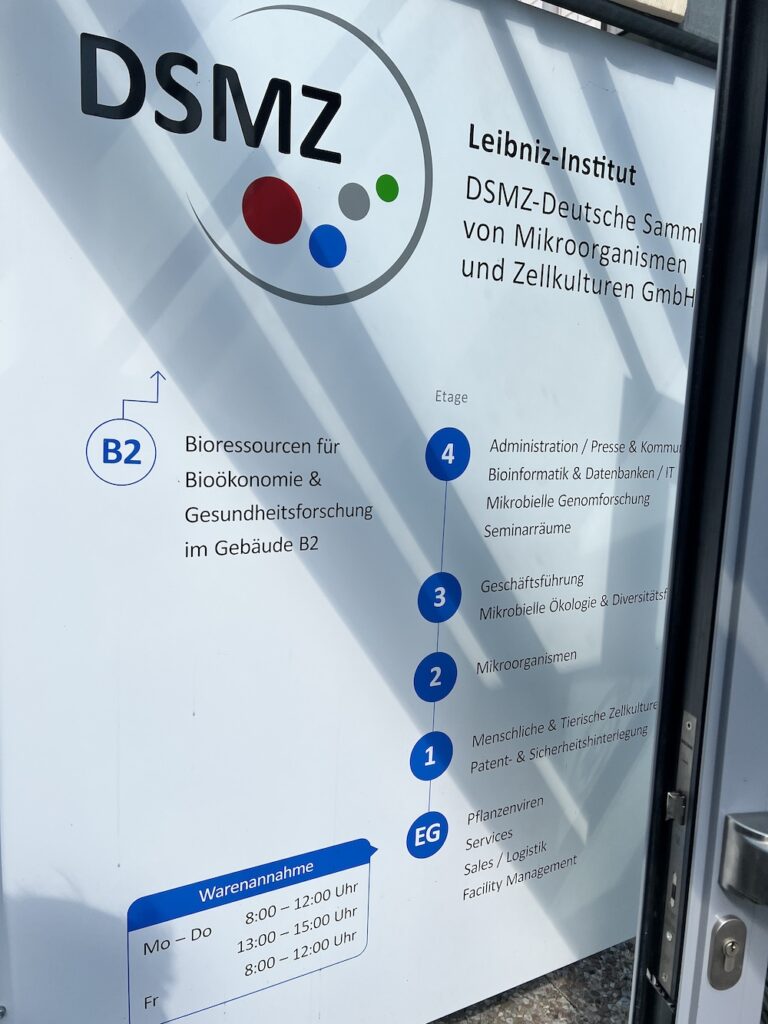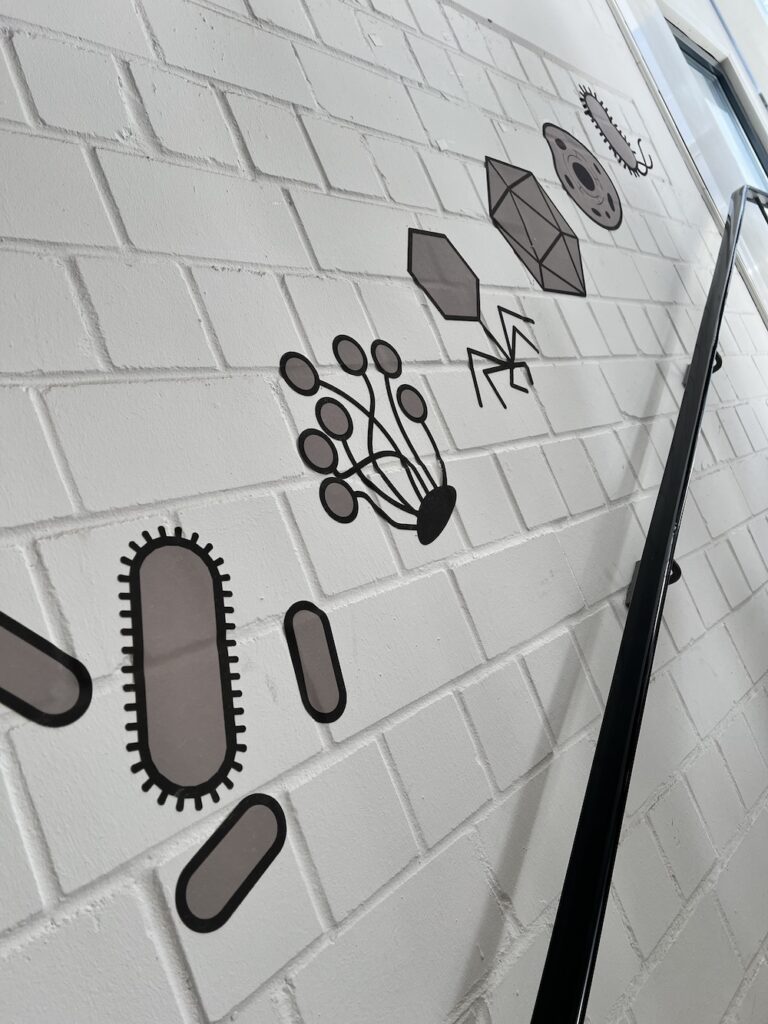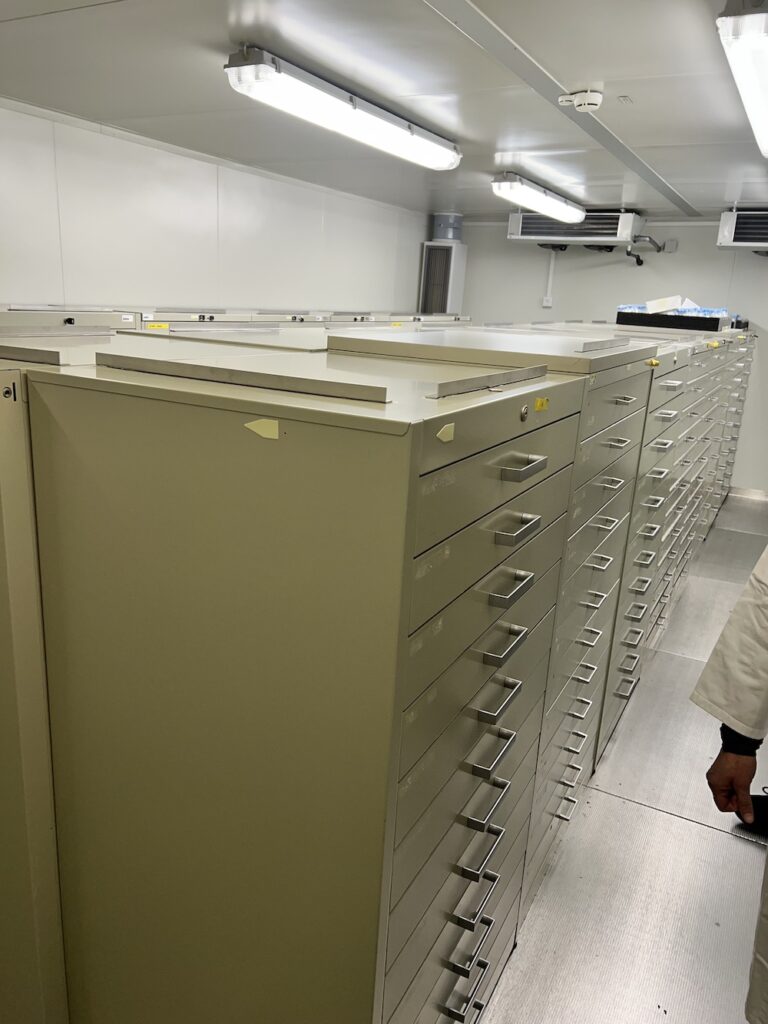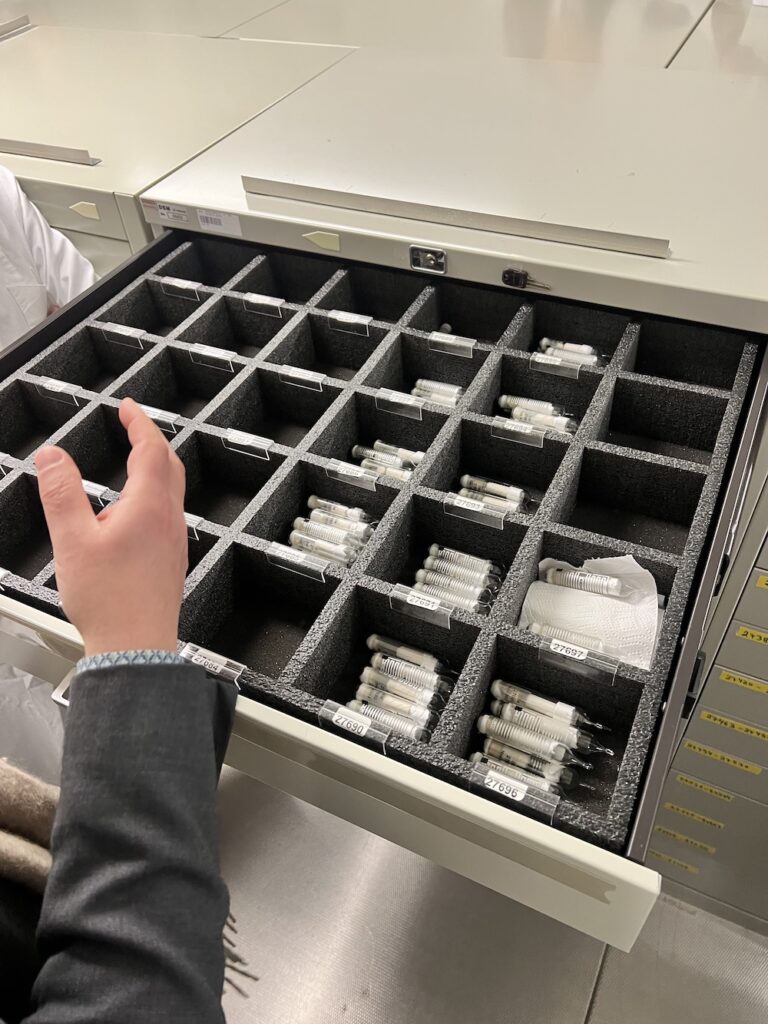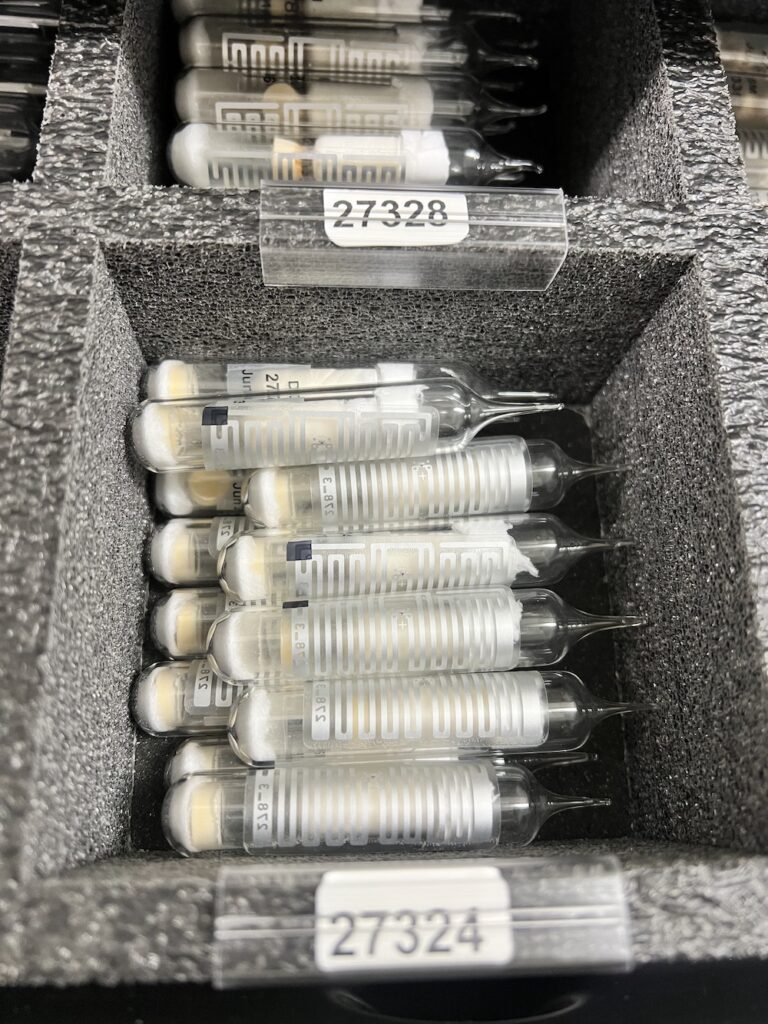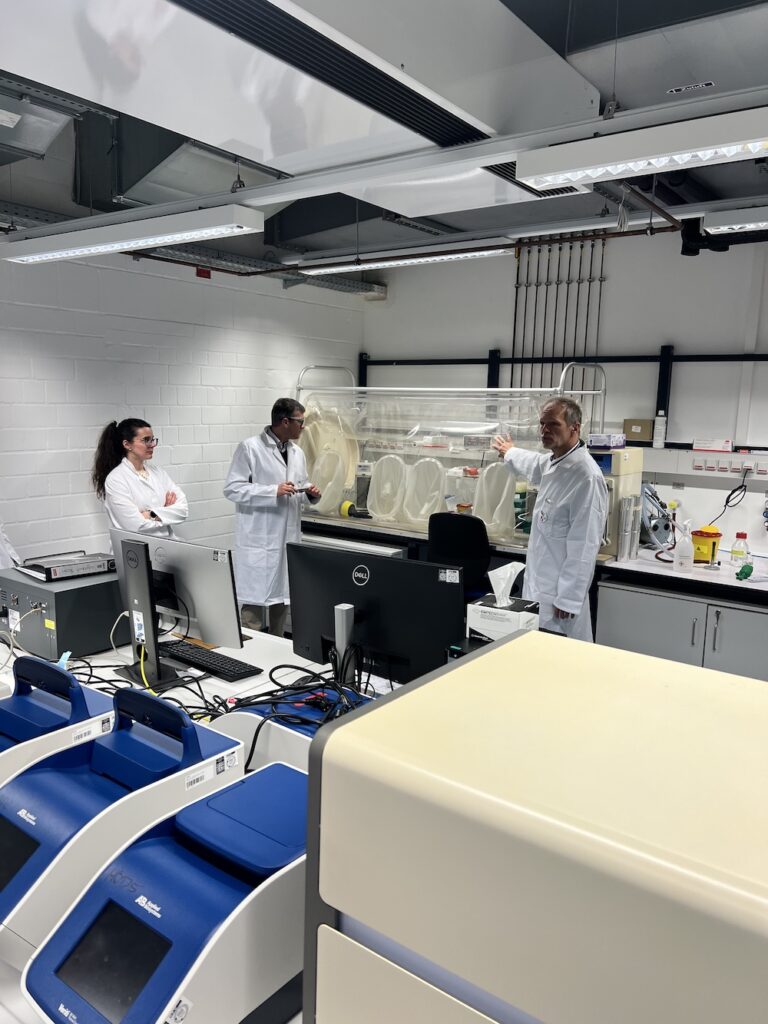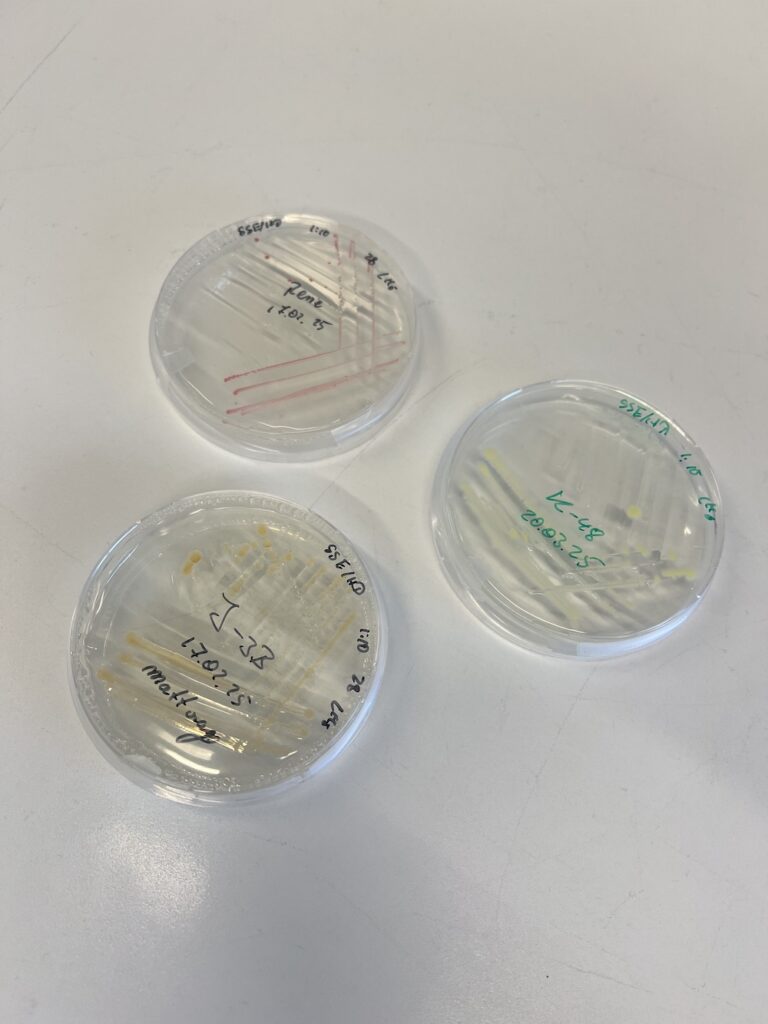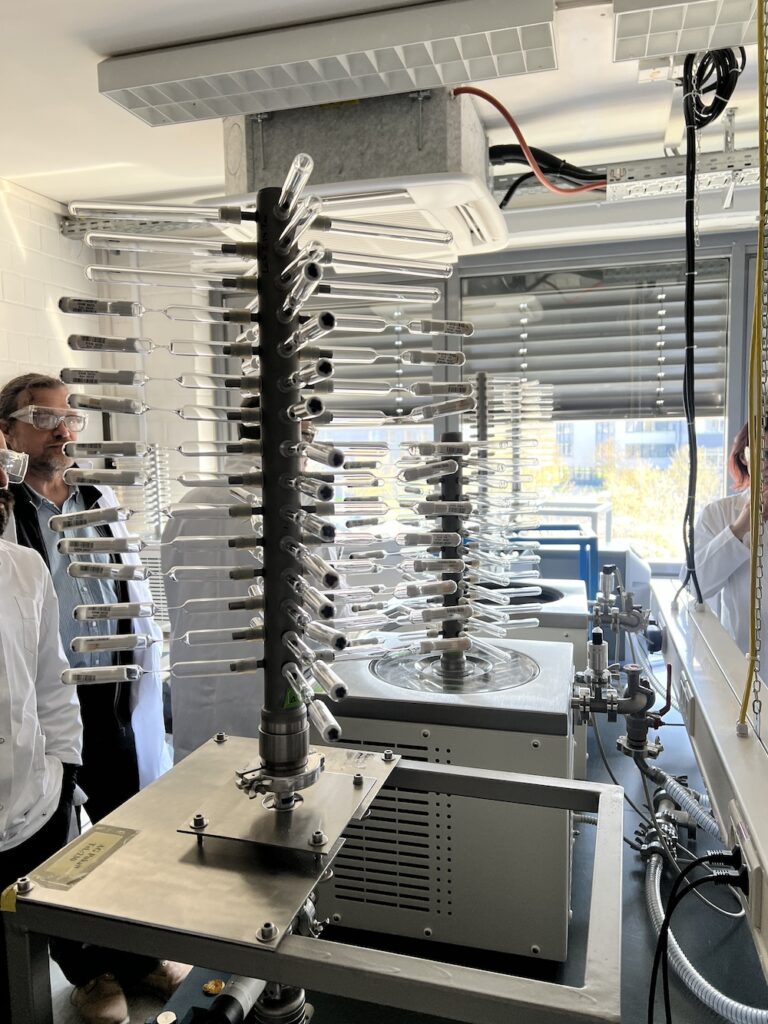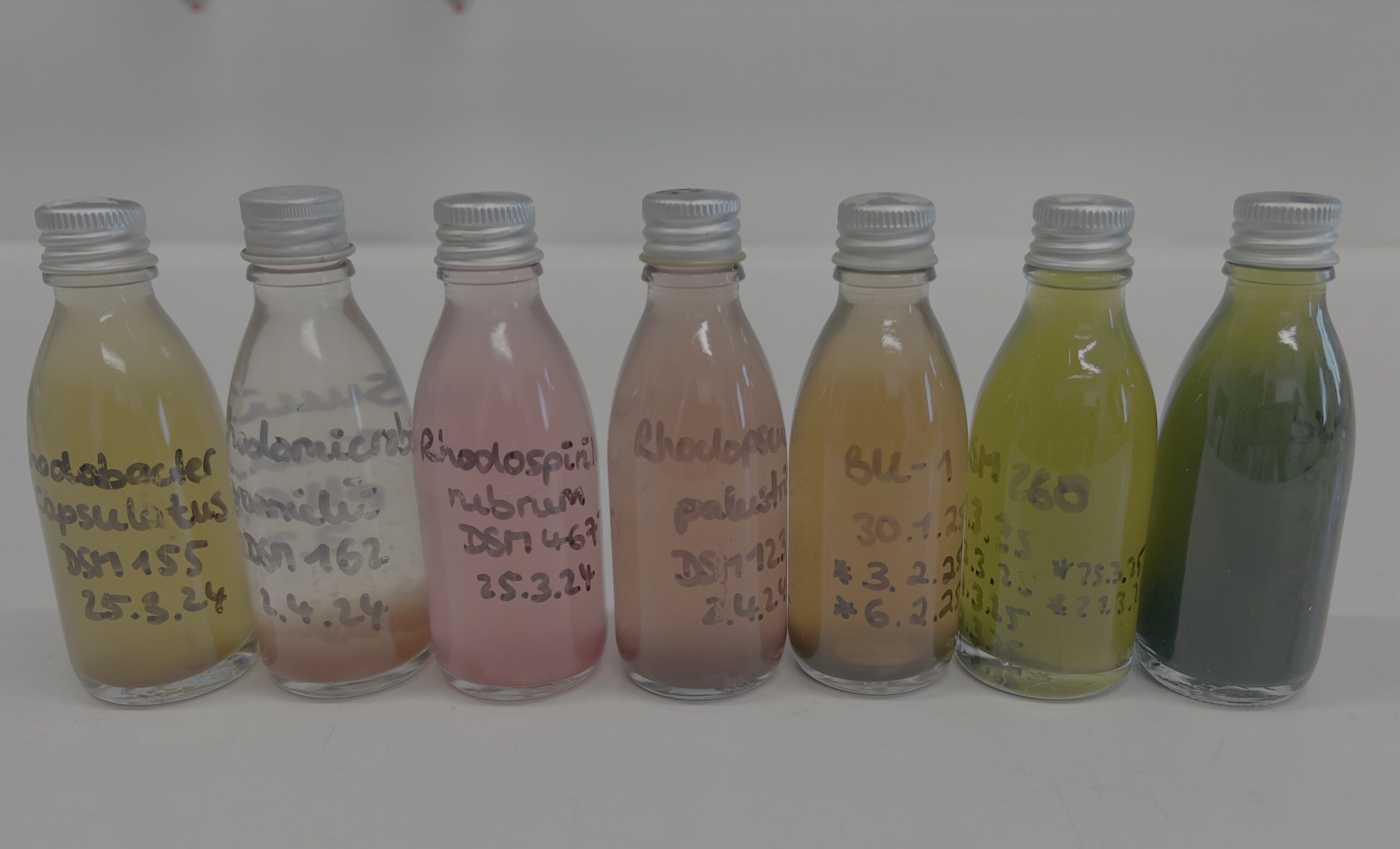
07 May Spotlight on DSMZ: Germany’s Leading Microbial Culture Collection
USCCN Project Manager Dusti Gallagher and Steering Committee member Matthew Ryan (CABI) participated in the MICROBE project (The MICRObiome Biobanking (RI) Enabler) 2nd Annual Consortium Meeting held on April 1–4 in Wöltingerode, near Braunschweig, Germany. Ryan is a project collaborator, and Gallagher serves on the Advisory Board. During the meeting, both had the opportunity to tour and learn about the Leibniz Institute DSMZ – the German Collection of Microorganisms and Cell Cultures GmbH (Leibniz-Institut DSMZ – Deutsche Sammlung von Mikroorganismen und Zellkulturen GmbH).
Located in Braunschweig in north-central Germany, DSMZ is an internationally renowned research institute and microbial culture collection recognized as a Leibniz Institute—a designation given to institutions that address real-world challenges through interdisciplinary research, service, and resource management.
Operating with approximately $20 million in annual public funding, DSMZ is one of the world’s largest and most diverse collections of bioresources. Its holdings currently include more than 90,000 bioresources, which includes:
-
- 39,800 bacterial and archaeal strains
- 9,800 fungal strains
- 950 human and animal cell lines
- 960 plant viruses plus antisera
- 1,400 bacteriophages
- 22,500 different types of bacterial genomic DNA
The research conducted at DSMZ focuses on:
-
- Microbial diversity and the underlying evolutionary mechanisms
- The diversity of microbial functions and adaptations
- The molecular mechanisms of biotic interactions
In 2018, DSMZ became the first registered culture collection under EU Directive 511/2014 and is certified according to the quality standard ISO 9001:2015, ensuring compliance with the Nagoya Protocol and providing legal certainty in the use of biological resources.
As a patent depository, DSMZ is the only facility in Germany where biological material can be deposited in accordance with the Budapest Treaty. All biological materials accepted in the DSMZ collection undergo extensive quality control, along with physiological and molecular characterization. DSMZ also provides comprehensive documentation and detailed diagnostic information on the biological materials it holds.
In addition, DSMZ is a key partner in several international organizations, including the European Culture Collections’ Organization (ECCO), the World Federation for Culture Collections (WFCC), and the Global Biodiversity Information Facility (GBIF).
During the visit, Dr. Jörg Overmann, Scientific Director of DSMZ, emphasized the importance of microbial collections: “We don’t understand genomes that naturally occur in the environment; we need isolates to begin understanding of them.”
When asked about the cost of isolating and depositing a microbial strain at DSMZ, Overmann referenced a study from nine years ago estimating the cost at €10,754 per strain, with an additional €3,23 per year for long-term preservation.
Reflecting on the visit, Matt Ryan, Senior Research Lead at CABI, shared: “In over 25 years of working with culture collections, I’ve never seen anything quite like the DSMZ. Their state-of-the-art lab facilities, sequencing equipment, and automated ampule cataloguing system are impressive and world leading.”

